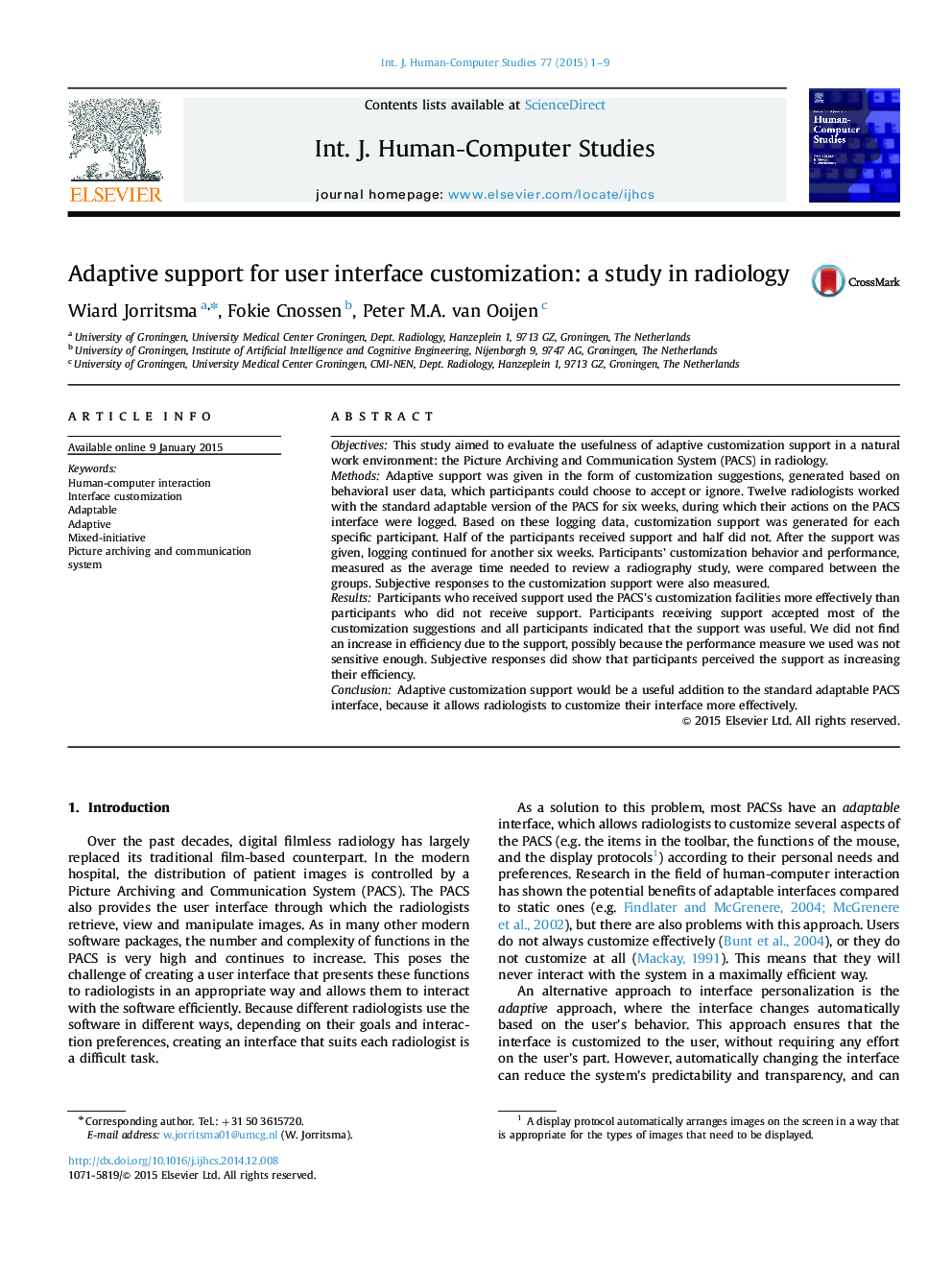| Article ID | Journal | Published Year | Pages | File Type |
|---|---|---|---|---|
| 400670 | International Journal of Human-Computer Studies | 2015 | 9 Pages |
•Radiologists do not always customize their user interface effectively.•They sometimes do not customize at all.•Adaptive customization support improves radiologists׳ customization effectiveness.•Radiologists have a positive attitude towards adaptive customization support.
ObjectivesThis study aimed to evaluate the usefulness of adaptive customization support in a natural work environment: the Picture Archiving and Communication System (PACS) in radiology.MethodsAdaptive support was given in the form of customization suggestions, generated based on behavioral user data, which participants could choose to accept or ignore. Twelve radiologists worked with the standard adaptable version of the PACS for six weeks, during which their actions on the PACS interface were logged. Based on these logging data, customization support was generated for each specific participant. Half of the participants received support and half did not. After the support was given, logging continued for another six weeks. Participants׳ customization behavior and performance, measured as the average time needed to review a radiography study, were compared between the groups. Subjective responses to the customization support were also measured.ResultsParticipants who received support used the PACS׳s customization facilities more effectively than participants who did not receive support. Participants receiving support accepted most of the customization suggestions and all participants indicated that the support was useful. We did not find an increase in efficiency due to the support, possibly because the performance measure we used was not sensitive enough. Subjective responses did show that participants perceived the support as increasing their efficiency.ConclusionAdaptive customization support would be a useful addition to the standard adaptable PACS interface, because it allows radiologists to customize their interface more effectively.
